|
The FBI is asking a regulatory body to expand its legal authority so it can take over almost any computer in the United States or the world, even secretly turning webcams on, all with far fewer constraints. The Bureau is trying to do an end-run around the Fourth Amendment by increasing the scope of federal warrants. Read here for the details!
0 Comments
Even seemingly good passwords provide little or no protection against hackers. Most people make a few basic mistakes when creating a password, making it easier for hackers to get around them. Read here on how to better circumvent hackers figuring out your password!
At the Facebook F8 developers conference in San Jose, CA on Wednesday, the company announced that it was working on a brain-to-text interface that would allow users to communicate silently, with their thoughts being written out into text. Get the scoop here!
Announced at its most recent 2017 annual F8 conference, a big part of Facebook's current maturation into a Fortune 500 corporate giant is that it's also going to be a maker of tools and services for businesses. Read here for the load down!
Intel has been long interested in the self-driving car market. This past Monday, Intel announced end more than $15 billion to acquire Israel's Mobileye NV, a software maker that processes the information cars see from cameras and sensors. It's the latest example of a major tech company making a splash in the race to develop autonomous vehicles. Here is a breakdown of big companies entering the autonomous car market, who they're partnering with and how much they're spending!
Shoelaces have been around since the early 1000's and tieing them only to have them unravel has been a frustration ... and mystery ... until now! Now the University of California has "unraveled" how this happens! But is it technical?? Why yes! Read on here!
It's hard to keep up with all the latest news, let alone the slang your teenager may use! Here's a guide to the top 20 slangs your teenager may be using!
So what happens to that old smartphone, computer, TV or other electronic device once you've thrown it out?
According to The World Counts, a website keeping a live tally of global e-waste: "Since the start of 2017, we have thrown out more than 6.4m tons of electronic goods. If past patterns are any judge, not much of this will get properly recycled: less than a sixth of the e-waste discarded around the world in 2014 was dealt with in this way, says the UN." The US recycled just 29% of the 3.4m ton of e-waste it produced in 2012, according to the Environmental Protection Agency, while the rest was sent to landfill or incinerated. In addition to lost money, there is also a negative environmental impact on our Earth. Read this article to learn more. Every twelve to eighteen months, computers double their capabilities, and so do the information technologies that use them.
Eighteen to twenty years out, technological advancements will be hundreds of thousands to a million times more advanced. Bio, nano, robotic and computer technology will become so rapid, so advanced, and so profound that today's limited understanding does not allow us to describe, within reason, what life will be like. In the early 2040's, the rapid pace of improved changes will be hundreds of millions of times faster than today as each year passes. Forty years out, with technology a trillion times more advanced then today. Fifty years out, the technology that is a quadrillion times more advanced than today will give us the ability to perceive a quadrillion. Go the the details as to why tech is progressing so fast, read here! Did you know that Microsoft's mainstream support for Windows 7 ended in January 2015, with extended support ending in January 2020? This means that Microsoft will no longer provide software patches or security updates for Windows 7. Windows 10 is rapidly becoming the platform of choice among Windows users. But did you know there are 6 Editions of Windows 10? Yep!
1. Windows 10 Home 2. Windows 10 Pro 3. Windows 10 Educational 4. Windows 10 Enterprise 5. Windows 10 Mobile 6. Windows 10 Mobile Enterprise So which Edition do you choose? Most people need only be concerned about the first 4 Editions which pertain to PC's. But which one is right for you? All of the first 4 Editions support the following: the much awaited Cortana, the Microsoft Edge browser, Windows Defender, Fast Start with HiberBoot feature, TPM support, Battery Saver and basic Windows Update feature. Continuum is also available in all editions so you can switch from PC to tablet mode and vice-versa. All Editions support: Personalization settings such as Lock Screen, wallpapers, themes, and customizing of sounds etc are also available in all Dditions of Windows 10. You can also download and add themes to your computer or tablet. Basic security is available to all editions in form of Windows Defender and Windows Firewall. Device Encryption will be available to all editions if the device hardware supports it. Beyond these basic features, things vary according to which Edition of Windows 10 you select with Windows 10 Home being the most basic. The good news is that you can upgrade from Windows Home to Professional and from Professional to Enterprise Edition if the version you buy winds up not meeting your software requirements. To find out more, read this FAQ and this article. Everyone knows that technology is progressing at a lightening pace. Every 12-18 months, computers double their capacities. While this is good for consumers, it also means that their older PC's, tablets and phones will find it more and more difficult to handle newer tech like software and higher end attached peripheral equipment. If your current laptop is older than 5+ years old, the chances are that new or the latest updated software won't even run on it or at a minimum, is atrociously slow! This is due to the newer software's need for more memory, faster processing, faster hard drives and sometimes larger storage capacity.
So what is one to do when looking for a new laptop? First thing to do is think about how you use your PC. Are you just surfing the web, doing email and a spreadsheet here or there? Or are you doing higher demand activities like photo editing, video editing and/or gaming? Higher demand could also mean that you keep several active windows of Excel, Word, Quicken and other software open simultaneously. If you are a low-end user, then the basic off-the-shelf computer sold at most brick-n-mortar stores may provide all that you need. However, if you are a high-end demand user, you'll likely need a faster processor, faster hard drive, perhaps even a solid state drive (SSD) and not just more memory, but fast memory. These are more often than not special orders and not what you find in most brick-n-mortar stores. Second, ask yourself how you treat your PC? Are you hard on your equipment, tossing it around a lot or are in an environment where it gets bumped around a lot? Are you in dusty environments like construction sites? Is there a lot of heat where you're working, like in the hot summer sun? If you are hard on your equipment, you may want to consider a PC that's more military grade to sustain hits, drops and heat. If sun and heat are an issue, you should also consider a solid state drive (SSD) rather than a standard hard drive (HD) since these generate substantially less heat and also weigh less so less weight to lug around. Third, how long do you anticipate keeping your PC? 2, 5 or more years? Since PC's aren't designed to last more than 5 years, would you rather pay to have it fixed or just replace it since your PC may not be keeping up with the more up-to-date software demands needed. In many cases, you may not be able to find parts for a computer older than 5+ years old and if you can, their cost may be prohibitive. Many computer manufacturers are moving toward an architecture where hard drives, memory and batteries are soldered onto the motherboard. This means that when any of these components break down or you want to upgrade them to a larger capacity, they cannot be individually replaced and you have to replace the entire motherboard, which is usually cost prohibitive. Some true enterprise / business laptops are intentionally staying away from this soldered design specifically so that components can be replaced by a business, saving cost in the end. Even so, some laptops must be sent to a hardware specialist or back to the manufacturer for parts replacement, while others are user serviceable. Although user serviceable, the replacement part may in reality be a proprietary part that you must purchase from the manufacturer at higher cost, which is often not cost effective. As such, make sure all parts can be replaced with non-manufacturer "generic" brand parts such as hard drives and memory which are usually standard sizes. Due to tight amperage, heat, fire and safety specifications, the only exception to this should be the battery. Use only batteries made by the same manufacturer as your laptop since off-brand batteries often do not adhere to the same strict manufacturer power and safety specifications and requirements. In other words, be sure to replace your laptop battery with the same brand and model as your laptop! Finally, what are your software requirements? Some require Windows 10 Professional vs. Windows 10 Home or one of the other 5 available Windows versions (see 4/11/2017 Blog article for more information on this). Some require a specific CPU chipset such as an Intel i7 and at least a certain amount of available memory (Windows 10 itself takes at least 8gb of RAM just to run the OS, absent of any other software you may want to run). There are other considerations such as type and number of USB, HDMI and other ports, viewing footprint, screen resolution, comfortable size and weight, battery life, security features and more, which can all play into a check-n-balance of what your laptop can and will do. Bottom-line though, is that for the most part, you get what you pay for. To stay ahead of the changes in technology the best you can, buy the fastest computer you can possibly afford. If you buy the slowest currently on the market, you're starting behind the 8-ball from the start and will likely wind up needing to replace it sooner than a faster computer because it won't be able to handle new and upgraded software demands, thus spending more money in the end. For a free consult, contact TheGoToTechGuru. CarPlay is an Apple specific integration with automobiles. It allows you to perform Apple iPhone functionality including iPhone apps through your car. While many cars offer Apple integration, this integration is not necessarily Apple CarPlay, but a more general phone integration with the car. CarPlay is specifically integration with your iPhone's following models: iPhone 7 / 7 Plus, iPhone 6s / 6s Plus, iPhone 6 / 6 Plus, iPhone SE, iPhone 5s, iPhone 5c, iPhone 5. Functions include, but are not limited to Siri integration, iPhone Map integration, iMessage integration, Music/Podcast/Audiobook integration, and integration with apps such as Pandora, iHeartRadio, NPR One and more! Most of the major car manufacturers offer Carplay in their more recent models. Unfortunately, it is not something that can be currently integrated into an existing car sound system that doesn't already have it unless perhaps you buy a new replacement sound system. For more information on Apple CarPlay read here.
Although not new news, I thought I'd repost this article. The next threat to your privacy could be hovering over head while you walk down the street. Hackers have developed a drone that looks for mobile devices with Wi-Fi settings turned on. It takes advantage of a feature built into all smartphones and tablets: When mobile devices try to connect to the Internet, they look for networks they've accessed in the past. The drone uses a signal pretending to be networks you've connected to in the past and hacks in that way. To find out more, read here.
Comcast’s Xfinity Internet service will make tens of thousands of households vulnerable to hackers and other security threats by converting thousands of customers’ modems into Wi-Fi hotspots. That means anybody with a Wi-Fi device could log into the Internet and possibly hack into your computer once the “hotspot” is activated. To make matters worse, Comcast is not asking customers whether they want their modem to become a hotspot or not. Instead, it is simply switching the service on, according to Houston Chronicle. Anybody who has a Comcast login number will be able to access the Internet via the home Wi-Fi hotspots. That means any Comcast customer could use your system if the Wi-Fi is turned on. The good news is that there a way to turn this off. Read this article for more information.
Apple is due to unveil the iPhone 8, the 10th Anniversary of its historic phone. Suspected additions and improvements include a curved edge-to-edge OLED display, wireless charging, USB-C connectivity replacing the lightening connector, enhanced water resistance and more. To get the latest, read here!
|
Blog AuthorI love technology and how it enhances our lives! Just think, without the Apollo moon missions, we might not have calculators! Imagine!! Archives
October 2018
Categories
All
|



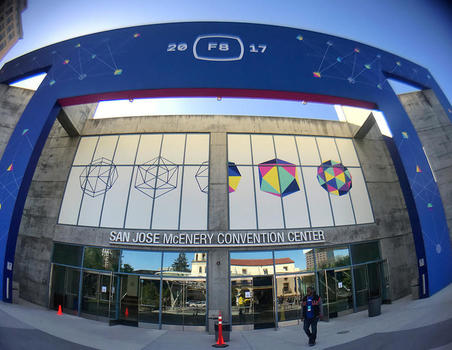



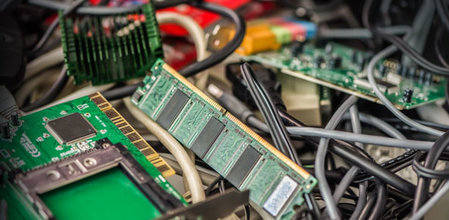

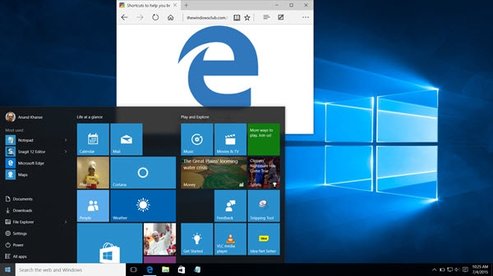
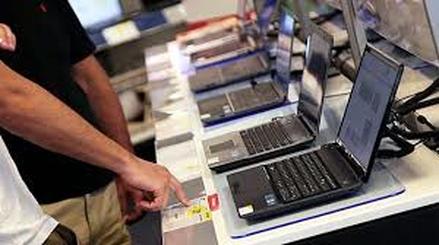
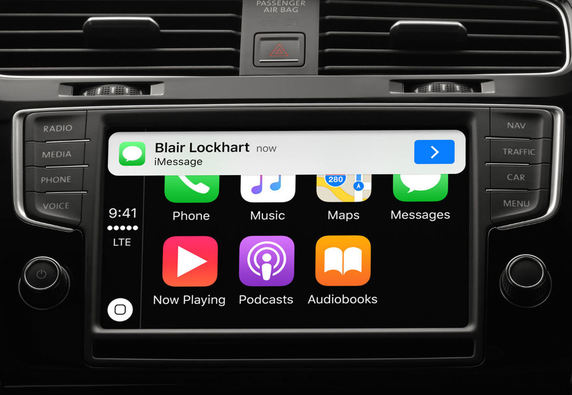


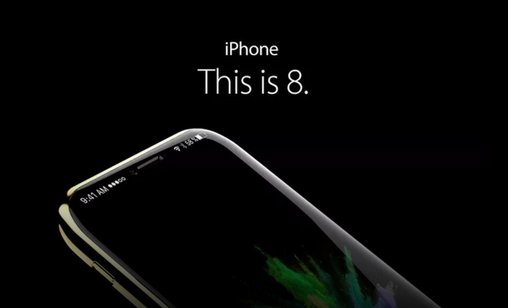
 RSS Feed
RSS Feed